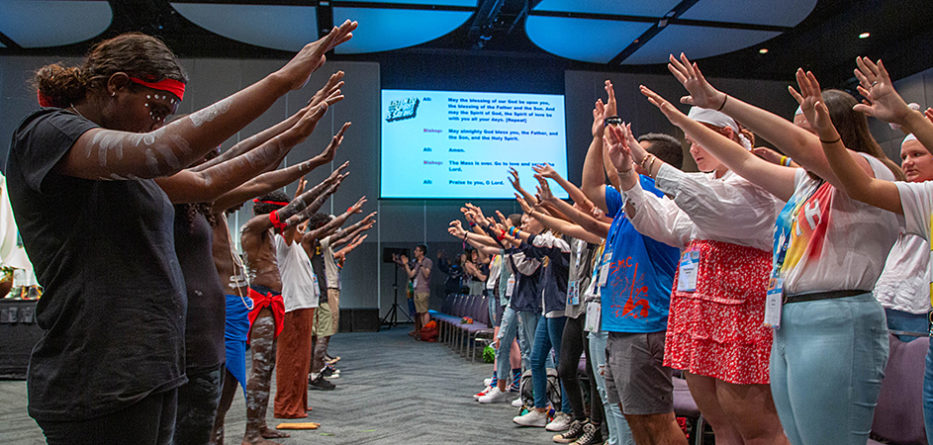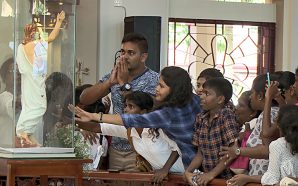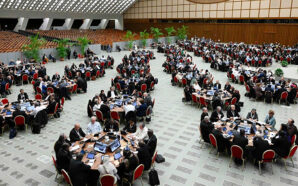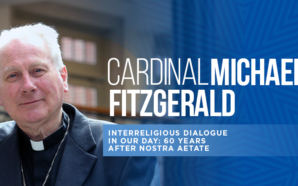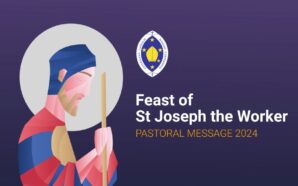TOWARDS THE REFERENDUM
A Statement from Australia’s Catholic Bishops
25 September 2023
In 1842, Australia’s first Catholic bishop, John Bede Polding, criticised the treatment of Aboriginal and Torres Strait Islander peoples: “The life of an (Aboriginal) human being is valued no more than the life of a kangaroo, and far less …than that of a bullock”. In 1849, he wrote to the people of Sydney in his Lenten message, “The wretched unfortunate Aborigines of the country – the first occupants of the lands over which your flocks and herds now roam – have a very strong claim upon you”.
There emerged in time a policy of assimilating Aboriginal and Torres Strait Islander peoples into mainstream Australian culture. However well-intentioned it may have seemed, the policy led to the dissolution of Indigenous culture. Within our nation’s history, the Church was regrettably part of that policy’s implementation.
We are now familiar with the concept of terra nullius (the view that before European settlement the land belonged to no one), the tragedy of the Stolen Generation and the fact that the prior habitation of the Aboriginal and Torres Strait Islander peoples was not recognised in the Australian Constitution.
We need to see the truth of what Aboriginal and Torres Strait Islander peoples have suffered and the disadvantage many experience to this day. Justice demands that we seek to rectify this disadvantage.
Australians are now being asked to consider a constitutionally enshrined Aboriginal and Torres Strait Islander Voice as one way to address this disadvantage. This was asked for in the Uluru Statement from the Heart. The hope of those who prepared the Uluru Statement is that this will not only offer constitutional recognition, but also assist progress towards a more just and equitable Australia, helping to tackle not just the symptoms but the causes of chronic disadvantage.
Pope Francis wrote recently of the Indigenous people of the Amazon, and how best to engage with them on issues particular to them: “They are our principal dialogue partners, those from whom we have the most to learn… Their words, their hopes and their fears should be the most authoritative voice at the table… Otherwise, the result would be, once again, ‘a plan drawn up by the few for the few’.” The same could be said of the Indigenous peoples of Australia.
In 1986 at Alice Springs, Pope St John Paul II said to the Aboriginal people: “You are part of Australia and Australia is part of you. And the Church herself in Australia will not be fully the Church that Jesus wants her to be until you have made your contribution to her life and until that contribution has been joyfully received.”
Pope Francis and Pope John Paul ask us to listen to the Indigenous peoples and to receive joyfully what they have to offer the whole nation and the world.
The Australian Catholic Bishops Conference’s statement on the Voice in May urged that the debate be conducted civilly and respectfully; there are some who strongly support the Voice and others who have concerns, including whether the Voice would benefit those most in need or could stifle good governance.
However differently they are viewed, the issues surrounding the Voice are not just political; they are moral and ethical. Therefore all Australians need to educate themselves. One way we might do this is by a careful reading of the Uluru Statement from the Heart and this year’s Social Justice Statement, Listen, Learn, Love: A New Engagement with Aboriginal and Torres Strait Islander Peoples.
We urge all Australians to listen to the hopes and fears of each other. We urge people to act in a way that commits to redressing the disadvantage suffered by the Aboriginal and Torres Strait Islander peoples and will allow them to reach their potential, thus promoting reconciliation for the good not just of some but of the whole nation.
May the Holy Spirit who opens locked doors give us light and strength to keep working for a better and more equitable Australia. Let us walk together.
With thanks to the ACBC.




